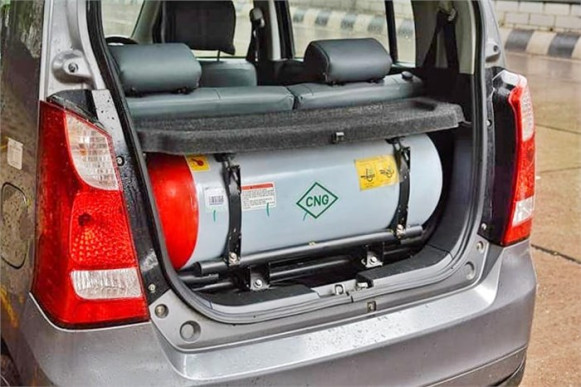- 5562
- 0
Sharing Ideas and Updates on LPG in Nigeria and related information to enable effective collaboration within the LPG Value Chain
CNG Adoption In Nigeria - Affordability And Implementation Concerns.

In a bid to provide Nigerians with an alternative to traditional petrol, the government's push towards Compressed Natural Gas (CNG) as a vehicle fuel has garnered both praise and concerns from experts (LPGAR, IPMAN) within the Oil and Gas industry. While the transition to CNG holds promises of reduced fuel costs and environmental benefits, the financial implications of vehicle conversion have raised valid apprehensions.
These industry experts expressed concerns about the affordability of converting vehicles to run on CNG. They argue that the cost of such conversions may pose a financial challenge for a significant portion of the population. Addressing these concerns, they suggest that government intervention, such as subsidies, might be necessary to encourage widespread adoption of CNG as an alternative to petrol.
The National Chairman of Liquefied Petroleum Gas Retailers (LPGAR), Mr. Ayobami Olarinoye, emphasized the importance of ensuring that vehicle conversion processes are carried out meticulously. He called for stringent adherence to quality standards, adequate training for conversion specialists, and the provision of necessary equipment. This approach aims to prevent situations where citizens might be subjected to subpar service or unfair pricing.
Mr. Olarinoye commended the government for promoting the CNG initiative and stressed that the transition should prioritize safety and quality standards. He also emphasized the need for enhanced public awareness campaigns to educate citizens about the benefits, challenges, and safety measures associated with CNG usage.
Alhaji Debo Ahmed, the President of the Independent Petroleum Marketers Association of Nigeria (IPMAN), echoed the sentiment that CNG offers a long-awaited alternative to petrol, contributing to market competition. He highlighted that while both fuels serve similar purposes, CNG brings an element of choice for consumers. Ahmed praised the government's move towards CNG adoption, emphasizing the importance of affordability and availability in making the transition viable for the general public.
Furthermore, Ahmed suggested that the implementation of CNG conversion should be flexible and user-friendly. He explained that adopting the National Gas Expansion Programme (NGEP) initiatives could facilitate installment-based payments for conversions, allowing consumers to pay as they switch to CNG vehicles. Ahmed also reassured Nigerians that the flexibility of the conversion process would enable drivers to revert to petrol if CNG is not available, ensuring convenience.
President Bola Tinubu's approval of the Presidential Compressed Natural Gas Initiative (PCNGI) on the 18th of August, 2023 signals a significant step towards achieving the adoption of CNG-powered vehicles throughout Nigeria. The initiative aligns with efforts to mitigate the impact of fuel subsidy removal by reducing energy costs and promoting eco-friendly practices.
Thus, as Nigeria embarks on the journey towards CNG adoption, addressing concerns surrounding affordability, quality, and availability is paramount. Government support through subsidies, coupled with a meticulous approach to vehicle conversion, will play a crucial role in making CNG a viable and sustainable alternative to traditional petrol. By prioritizing both consumer interests and environmental considerations, Nigeria can navigate the road to CNG adoption with confidence and success.
Do you think the adoption of CNG will thrive in Nigeria? Comment your opinion below and let us know your thought.
Source: Nairametrics.
















0 Comment.